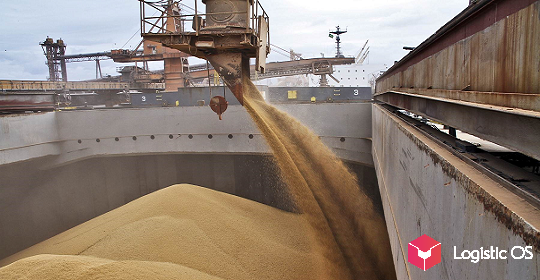But without state support, it will be difficult to increase production volumes.
In March of this year, Russia introduced a temporary ban on the export of grain, including wheat.
This led to the fact that flour exports grew very strongly in the season ended. Everything is logical: bread needs to be made, but grain cannot be purchased — all that remains is to buy flour.
As a result, it was sent abroad by 138% more than in the previous season, exports increased from 205 thousand tons to 488 thousand.
In particular, Georgia began to buy 12 times more flour, Afghanistan — 22 times, Iraq — 12 times, and Turkey — as much as 60 times.
Against the background of all this, in most of the listed countries, their own flour mills have largely reduced their production volume, or even stopped altogether: there is no raw material.
On the other hand, Russian flour millers are clearly on the winning side: they have much more work to do than before.
And this is not the limit: Eduard Zernin, chairman of the Russian Union of Grain Exporters, believes that flour exports can still grow thanks to grain export quotas, which may be similar to the one that was in effect from February 15 to June 30 of this year and assumed a ban on exports of more than 11 million tons of grain, including 8 million tons of wheat.
Do Russian millers have room to grow?
Of course, now they have a very good opportunity to form for themselves a permanent client base from among foreign buyers.
Of course, high volumes of work require additional capacities, but they already exist and allow us to produce 2-3 million tons of flour per year for export.
And these are only large enterprises, but there are also small mills capable of grinding up to 3-4 million tons of flour.
True, it will not be of such high quality, and therefore it is unlikely to be exported. But on the other hand, it can largely fill the domestic market so as not to «distract» the leading enterprises from the production of export flour.
At the same time, it is obvious that, one way or another, a very large amount of flour will accumulate inside Russia, because in the end you will have to grind almost everything that has grown in the fields yourself. And this will spur competition between flour mills.
Government support is not enough
With all this, there are problems. For example, many flour mills need equipment upgrades.
There is also a big difficulty in logistics: Russia is huge, and transportation costs can destroy up to 30% of revenue.
At the same time, the state still supports millers only on paper: for example, support for the export of flour is not even included in the state program for the development of agriculture. Although it is obvious that this is a very “bread” segment in all respects.

